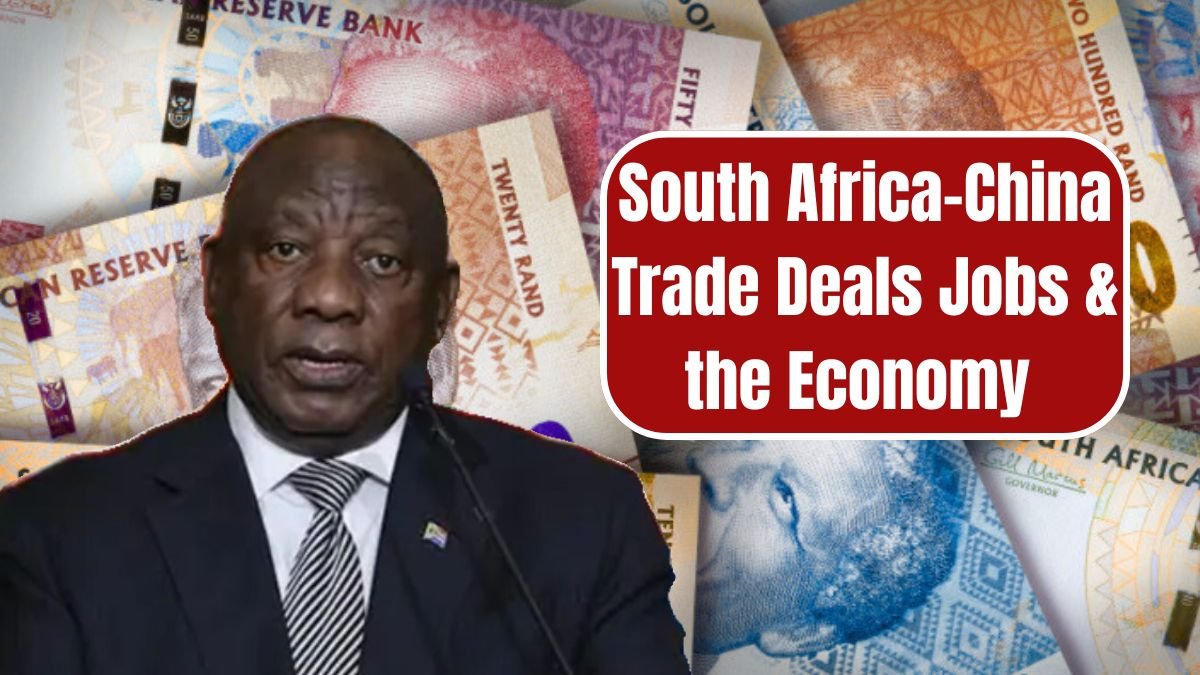Trade agreements between South Africa and China have been recently signed to consolidate and expand trade and investment relations. Government officials have expressed a measure of optimism about the potential unleashed by these agreements; analysts remain divided, however, on the long-term effects on the real estate sector, industries, and economic equilibrium as an even broader matter.
A Stimulus on the Bilateral Trade
China ranks first as South Africa’s trading partner, with billions of dollars of shipments going across yearly. Hence, these new agreements intend to further the transnational relation, amongst others, into such areas as:
- Mining and raw material- coal, iron ore, and platinum export assurance
- Agriculture- marketing of South African wine, citrus, and beef in China
- Technology and infrastructure- partnerships in the manufacture, renewable energy, and logistics.
According to officials, these agreements will further cement the economic integration and permit South Africa to have greater access to one of the largest consumer markets on Earth.
Job Creation Potential
There are many promises related to trade issues on job creation, with the expectation that Chinese investors will be putting capital into factories, logistics centers, and technology parks across the country so that eventually thousands of jobs would be created through these investments. Particularly, the export and demand for local produce would enhance with agriculture. This benefit could then pass on to farmers, transporters, and processing plants as they scale production. However, labor unions counter that these jobs might turn to the detriment of the workers, low wages, or temporary in nature, depending on the strength of the safeguards, whereas in the long run, it is the rich corporate entities that stand to gain the most.
Threats to Local Industries
While the agreements could strengthen some sectors, they raise concerns by totally flooding South African markets with cheap Chinese goods. Local producers of textiles, electronics, and household items will find that it will be hard to compete, thus job losses in an industry already under pressure. Economists ordinarily assert that for a country to grow, an equal status has to be maintained between imports and exports; otherwise, trade would rise in deficit. It is further to be remarked that Chinese investment ought to be conditioned on the transfer of skills and technology and not merely on supplying raw materials.
Infrastructure and Technological Upgrades
The apparatus got a fair chance from the very start for China’s commitment to the infrastructure advance. These projects may include railway networks, renewable energy plants, and telecommunication upgrading. These investments might lead South Africa toward fixing several long overdue problems-energy, poor logistics, and transport issues. Renewable energy and electric vehicle-related partnerships will be another area to upgrade South Africa’s industrial base, to transform it into a competitive nation at the international level.
Economic Considerations
If the supervision is evil enough, this trade negotiation will bring about growth, creation of human capital, and the regional alleviation of unemployment, but if there are no policies, it can put China in control of the country threatening even industries meant to benefit on their own.
also read : Bad News For Drivers: New October 2025 U.S. Driving Law Brings Jail Time And $1,500 Fines
